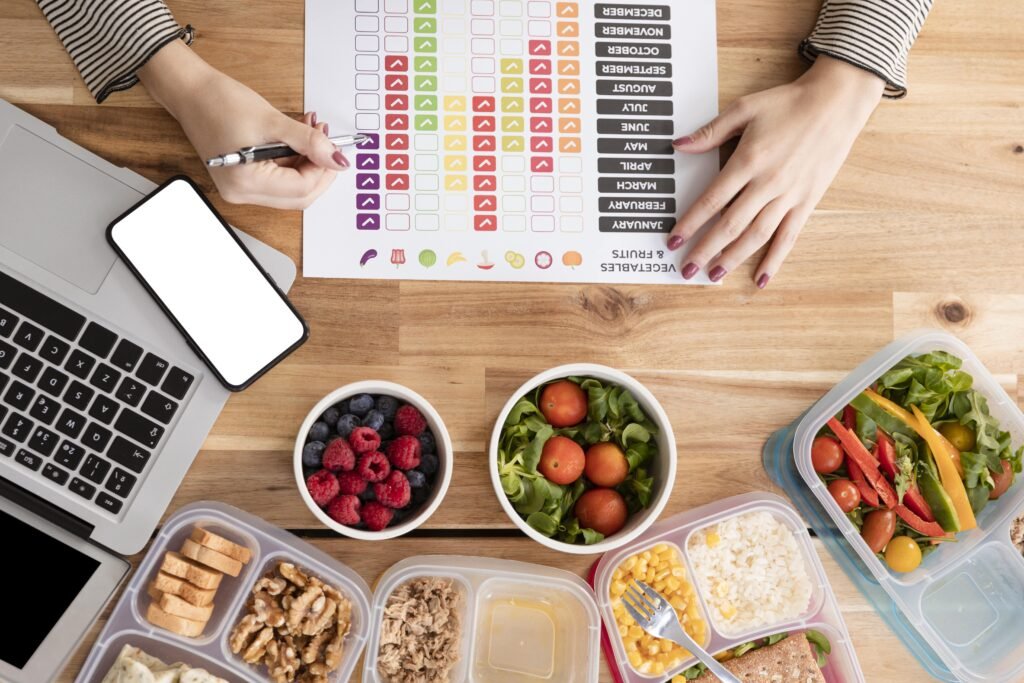Bloating and gas aren’t just uncomfortable—they can interrupt your daily life, impact your confidence, and make even the simplest tasks feel challenging. Whether it’s a tight waistband, a visibly swollen stomach, or the painful cramps that accompany trapped gas, we all know the feeling. But the good news? You don’t always need medicine to feel better.
As someone who has personally dealt with digestive troubles for years, I know how frustrating it can be to feel bloated for no apparent reason. Through trial, error, and a lot of research, I’ve discovered some incredible home remedies that have made a real difference in my life. These aren’t just tips; they’re tried-and-true methods that offer relief, comfort, and healing from the inside out.
In this comprehensive guide, we’ll dive into 20 of the most effective home remedies for bloating and gas. These natural solutions are simple, budget-friendly, and backed by traditional wisdom. And while they have roots in age-old practices, they’re still incredibly relevant today.
Let’s begin by understanding what causes bloating and gas in the first place.
Table of Contents
What Causes Bloating and Gas?

Bloating is the uncomfortable feeling of fullness, often accompanied by a swollen belly. Gas, on the other hand, is the buildup of air in your digestive tract. Both are usually symptoms of an underlying issue, such as:
- Overeating
- Eating too quickly
- Swallowing air (while talking, drinking, or chewing gum)
- Consuming gas-producing foods like beans, lentils, and cruciferous vegetables
- Food intolerances (like lactose or gluten sensitivity)
- Constipation
- Stress and anxiety
- Hormonal fluctuations (especially in women)
Now that we understand the causes, let’s explore some practical, natural remedies that can provide immediate and long-term relief.
Home remedies for bloating and gas

1. Sip on Ginger Tea
One of the first remedies I tried was ginger tea, and it worked wonders. Ginger stimulates saliva, bile, and gastric enzymes, which aids digestion and reduces gas formation. It also has anti-inflammatory properties that calm the stomach.
How to Use: Boil a few slices of fresh ginger in water for 10 minutes. Add a bit of honey or lemon if you like. Drink it after meals or when you start to feel bloated.
2. Chew on Fennel Seeds
This is something my grandmother swore by—and now I do too. Fennel seeds help relax digestive tract muscles, allowing trapped gas to pass and easing bloating.
How to Use: Chew a teaspoon of fennel seeds after your meals or make fennel tea by boiling the seeds in water.
3. Drink Warm Lemon Water
Warm lemon water is an excellent way to start your day. It jumpstarts digestion and balances stomach acid levels, which can prevent bloating.
How to Use: Squeeze half a lemon into a glass of warm water and drink it on an empty stomach.
4. Try a Turmeric Infusion
Turmeric contains curcumin, which has powerful anti-inflammatory and antioxidant effects. It helps reduce inflammation in the gut and stimulates bile production, making digestion smoother.
How to Use: Add half a teaspoon of turmeric powder to a cup of hot water or milk. Add black pepper to enhance absorption.
5. Add Cumin Seeds to Your Diet
Cumin improves digestion by stimulating the secretion of digestive enzymes. It also reduces the formation of gas in the intestines.
How to Use: Roast cumin seeds and add them to your meals or make cumin tea by boiling the seeds in water.
6. Eat Slowly and Mindfully
Sometimes, the best remedy is changing how we eat. Eating quickly and not chewing properly causes us to swallow more air, which leads to gas.
Personal Tip: Put down your fork between bites, chew thoroughly, and avoid distractions like TV or your phone during meals.
7. Practice Deep Breathing
Stress is often overlooked when it comes to digestive issues. But our gut and brain are closely linked, and anxiety can slow digestion and lead to bloating.
How to Use: Try deep breathing exercises for 5 minutes a day. Inhale deeply through your nose, hold for a few seconds, and exhale slowly. It’s calming and helps reset your digestive system.
8. Move Your Body
Physical activity encourages the passage of gas through the digestive tract. Even a short walk after meals can work wonders.
How to Use: After eating, take a 15-20 minute walk. Gentle yoga poses like “wind-relieving pose” or “child’s pose” also help ease abdominal pressure.
9. Drink Buttermilk with Carom Seeds
Buttermilk is soothing for the gut and aids digestion. When combined with carom seeds (ajwain), it becomes a powerhouse remedy.
How to Use: Add a pinch of carom seeds and a pinch of black salt to a glass of buttermilk. Stir and drink after meals.
10. Include Asafetida in Cooking
Asafoetida (hing) is a powerful spice known for its anti-flatulent properties. It reduces bloating and supports healthy digestion.
How to Use: Add a pinch to lentils or beans while cooking. Alternatively, mix with warm water and drink a small amount after meals.
11. Stay Hydrated
Proper hydration keeps things moving in your digestive tract and prevents constipation—a common cause of bloating.
How to Use: Aim for at least 8-10 glasses of water daily. Infuse with mint, cucumber, or lemon for added benefits.
12. Snack on Papaya
Papaya contains the enzyme papain, which helps break down proteins and supports digestive health.
How to Use: Enjoy a bowl of ripe papaya as a post-meal snack.
13. Avoid Chewing Gum and Carbonated Drinks
Chewing gum causes you to swallow excess air, and fizzy drinks introduce carbon dioxide into your system. Both contribute to gas.
Personal Tip: Replace soda with herbal teas and keep a natural mint handy instead of chewing gum.
14. Soak Fenugreek Seeds Overnight
Fenugreek seeds are known for reducing water retention and aiding digestion.
How to Use: Soak one teaspoon in water overnight. In the morning, drink the water on an empty stomach.
15. Keep a Food Diary
Identifying your trigger foods can be a game changer. For me, raw onions and excess dairy were culprits.
How to Use: Write down everything you eat along with any symptoms. Over time, patterns will emerge.
16. Massage Your Abdomen
Abdominal massages help move trapped gas and improve digestion.
How to Use: Use gentle circular motions, moving clockwise around your navel. You can use warm mustard or coconut oil for added relaxation.
17. Try Herbal Mixes with Licorice or Mint

Herbs like mint and licorice help soothe the stomach lining and relieve gas.
How to Use: Look for herbal teas or prepare your own mix. Boil mint leaves and a small piece of licorice root, strain, and sip slowly.
18. Add Cloves to Warm Water
Cloves help relax the digestive tract muscles and reduce bloating.
How to Use: Crush a few cloves and steep in hot water. Drink after meals.
19. Don’t Skip Meals
Skipping meals can cause bloating when you finally eat a large portion.
How to Use: Eat small, frequent meals throughout the day to maintain balance in your digestive system.
20. Practice Gratitude Before Eating
This might sound unconventional, but a relaxed state of mind improves digestion. Taking a moment to be thankful calms your nervous system.
How to Use: Pause before your meal, take three deep breaths, and think of something you’re grateful for. It sets a positive tone for digestion.
Lifestyle Tips to Prevent Bloating and Gas
In addition to the remedies above, small changes in daily habits can dramatically reduce your chances of bloating and gas. Here are some of the most effective ones:
1. Stick to Regular Mealtimes
Eating at consistent times each day keeps your digestive rhythm stable. Irregular eating disrupts digestion and causes bloating.
2. Limit Processed and Packaged Foods
These often contain preservatives, artificial sweeteners, and high sodium levels, all of which can irritate your digestive system.
3. Cook Fresh Meals at Home
Home-cooked meals let you control ingredients and spices, many of which aid digestion when used appropriately.
4. Avoid Talking While Eating
Talking while eating increases the likelihood of swallowing air, which leads to bloating.
5. Elevate Your Feet During Bowel Movements
Use a small stool to mimic a squatting position. This helps the body pass stool more easily and reduces the risk of gas buildup.
6. Quit Smoking
Smoking introduces excess air and toxins into your body. It also weakens the valve between the stomach and esophagus, increasing bloating.
7. Practice Intermittent Fasting Wisely
While intermittent fasting helps many people, be cautious. Skipping meals or eating large portions after fasting can worsen bloating.
8. Sleep on Your Left Side
This position allows gravity to assist digestion, especially overnight.
9. Avoid Late-Night Eating
Digestive processes slow down in the evening. Aim to finish your dinner 2–3 hours before bedtime.
10. Use a Heating Pad
If you’re feeling bloated, a warm compress or heating pad on your stomach can provide immediate relief by relaxing the muscles in your digestive tract.
Sample Diet Plan to Reduce Bloating and Gas

Here’s a simple, balanced meal plan that includes ingredients known to reduce bloating and gas, catering to a wide audience without relying on specific regional references.
Morning (7:00 AM – 8:00 AM)
- Warm lemon water with a pinch of cumin powder
- Light stretching or 5–10 minutes of yoga
Breakfast (8:30 AM – 9:00 AM)
- Oats porridge with a dash of cinnamon and sliced banana (ripe, not raw)
- Herbal tea (like fennel or mint)
Mid-Morning (11:00 AM)
- A handful of soaked fennel or soaked raisins
- One glass of coconut water or buttermilk with a pinch of carom seeds
Lunch (1:00 PM – 2:00 PM)
- Steamed rice or flatbread with a serving of lentils (tempered with cumin, asafoetida, and turmeric)
- Light sautéed vegetables (zucchini, carrots, bottle gourd)
- A bowl of plain yogurt with roasted cumin powder
Evening Snack (4:00 PM – 5:00 PM)
- Roasted pumpkin seeds or a few pieces of papaya
- Ginger tea or peppermint tea
Dinner (7:00 PM – 8:00 PM)
- Khichdi (a soft, mushy combination of rice and moong lentils seasoned with cumin and turmeric)
- Light sautéed spinach or ridge gourd
- Herbal infusion post-dinner (clove or fennel-based)
Before Bed (9:30 PM – 10:00 PM)
- Warm water with a pinch of turmeric and black pepper (optional)
- Deep breathing or gratitude practice
This plan is gentle on the stomach, easy to digest, and rich in foods that help reduce inflammation and promote gut health.
Final Thoughts
Managing bloating and gas naturally requires a bit of self-awareness, consistency, and experimentation. These 20 remedies, along with lifestyle tweaks and mindful eating, have helped me tremendously and continue to be part of my daily wellness routine.
You don’t need to try everything at once. Start with one or two remedies or habits that resonate with you, and observe how your body responds. Remember, your digestive health is deeply connected to your overall well-being.
If symptoms persist or become severe, always consult a healthcare professional.
Disclaimer: This article is based on personal experience and traditional practices. It is for informational purposes only and not a substitute for medical advice.
Frequently Asked Questions (FAQs)
What is the fastest home remedy for gas and bloating?
Sipping warm water with fennel seeds or drinking ginger tea provides quick relief from bloating and trapped gas. You can also try gentle abdominal massage or a short walk to stimulate digestion.
Which foods cause the most bloating?
Foods like beans, lentils, broccoli, cabbage, onions, carbonated drinks, dairy (if lactose intolerant), and artificial sweeteners are common culprits behind bloating.
How do I get rid of bloating overnight?
Avoid heavy dinners and late-night snacking. Drink a calming herbal tea such as peppermint or chamomile, and sleep on your left side to promote better digestion overnight.
Can drinking water help with bloating?
Yes, staying hydrated helps move waste through your system and reduces water retention, which in turn minimizes bloating.
Is it normal to feel bloated every day?
Occasional bloating is common, but persistent daily bloating may indicate underlying issues such as food intolerances, IBS, or hormonal imbalances. Consult a healthcare provider if it continues.
Are probiotics good for bloating?
Yes, probiotics can help restore the balance of good bacteria in the gut, which may reduce bloating over time. Look for foods like yogurt, kefir, and fermented vegetables.
